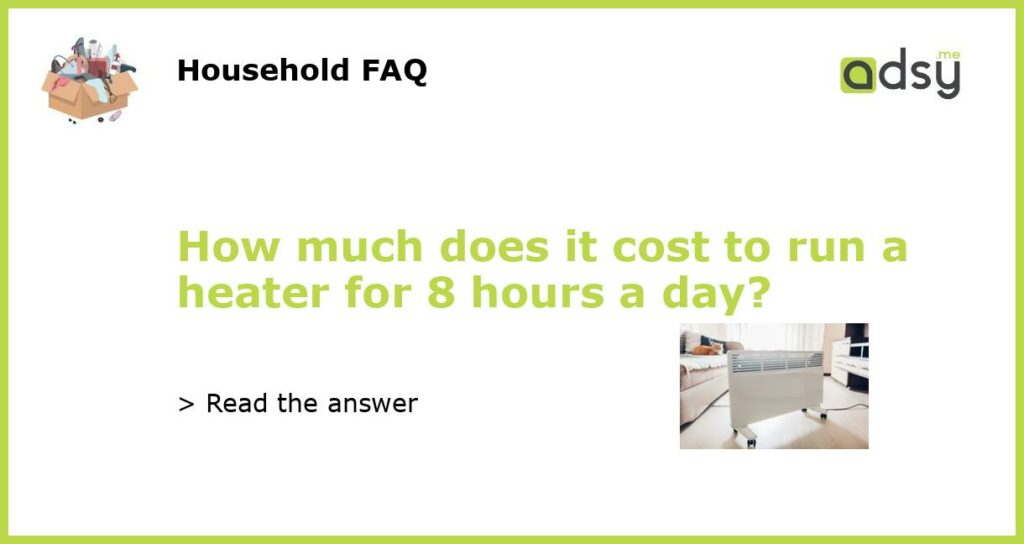Calculating the Cost of Running a Heater for 8 Hours a Day
Running a heater for extended periods of time can quickly add up in terms of energy costs. Whether you are concerned about the impact on your monthly utility bill or simply curious about the amount of energy your heater consumes, it is important to understand how to calculate the cost of running a heater for 8 hours a day.
Factors to Consider
There are several factors that contribute to the cost of running a heater, including the type of heater, energy source, and the local utility rate. To determine the total cost, you will need to gather specific information about your heater and your energy costs.
Calculating Energy Consumption
First, you will need to determine the energy consumption of your heater. Look for the wattage rating or the BTU (British Thermal Unit) rating on the heater itself or in the user manual. The wattage rating indicates the power consumption, while the BTU rating measures the heating capacity.
Once you have this information, you can use the following formula to calculate the energy consumption:
Energy Consumption (in kWh) = (Wattage / 1000) x Hours of Use
For example, let’s say your heater has a wattage rating of 1500W and you plan to use it for 8 hours a day:
Energy Consumption = (1500W / 1000) x 8 hours = 12 kWh per day
Determining the Cost
Now that you know the energy consumption, you can calculate the cost of running your heater for 8 hours a day. To do this, you will need to know the cost per kilowatt-hour (kWh) charged by your utility company.
Simply multiply the energy consumption by the cost per kWh to determine the total cost:
Total Cost = Energy Consumption (kWh) x Cost per kWh
For example, if your utility company charges $0.15 per kWh:
Total Cost = 12 kWh x $0.15 = $1.80 per day
Considerations and Tips
While the above calculations provide a general idea of the cost, there are a few additional factors to consider:
- Heater Efficiency: The energy consumption mentioned earlier assumes that the heater is running at maximum efficiency. Older or less efficient heaters may consume more energy, resulting in higher costs.
- Temperature Settings: Lowering the temperature setting on your heater can help reduce energy consumption and save on costs. Consider using a programmable thermostat to automatically adjust the temperature based on your needs.
- Time of Use Rates: Some utility companies offer different rates for electricity usage during peak and off-peak hours. If your utility company has time of use rates, it may be more cost-effective to run your heater during off-peak hours.
Additionally, if you are concerned about the environmental impact of running a heater, you may want to explore alternative heating options such as energy-efficient heaters or renewable energy sources like solar power.
By understanding the factors that contribute to the cost of running a heater and taking steps to optimize energy consumption, you can better manage your energy usage and reduce costs.






